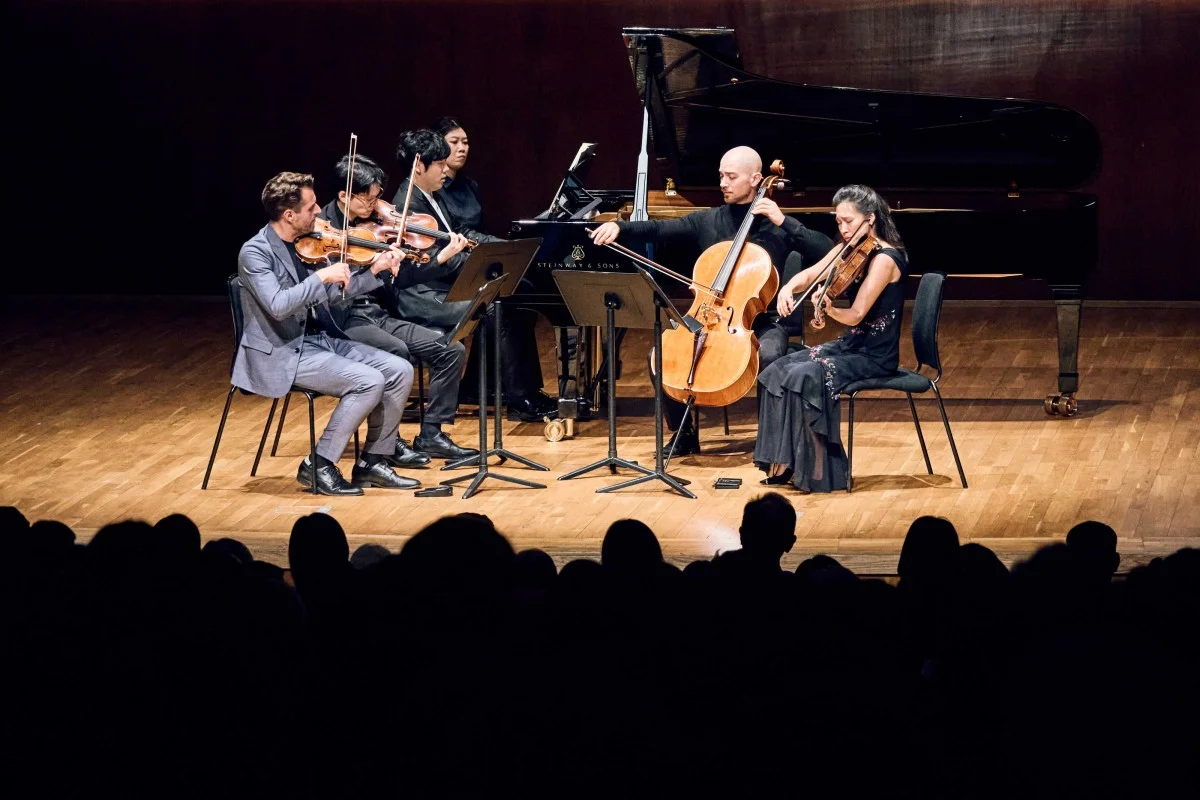Pianist Haochen Zhang signaled the end of a breathtaking performance with the Dover Quartet by gently closing the lid of the Steinway grand piano, following a powerful interpretation of César Franck’s Piano Quintet in F minor. Taking place at Hong Kong City Hall on May 12 as part of the French May festival, this concert was a compelling showcase of emotional depth, technical brilliance, and musical cohesion.
The audience responded with enthusiastic applause, but an encore would have seemed unnecessary—almost indulgent—after such an emotionally and musically complete experience. The performance, organized by Premiere Performances of Hong Kong, was defined by intensity, nuance, and exceptional artistry.
The quintet began with Franck’s “Allegro,” where each voice emerged like a distinct note in a perfectly blended wine, harmoniously balanced yet individually expressive. The “Lento” movement that followed was a moment of quiet introspection. Here, the quartet’s warmth and sensitivity were especially pronounced, with cellist Camden Shaw offering a particularly impassioned performance.
In the finale, “Allegro non troppo ma con fuoco,” the music surged with relentless energy. The ensemble’s chemistry, honed at the Curtis Institute, shone alongside Zhang’s masterful touch. Despite the complexity and thematic transformations that risked overwhelming the listener, the Dover Quartet maintained a clear sense of direction, never letting the music lose its shape.
The program continued with Dvořák’s “American” String Quartet No. 12 in F Major, offering a refreshing contrast. The opening “Allegro ma non troppo” featured a striking viola solo from Julianne Lee, unfolding with both rhythmic vitality and emotional poise. The slow “Lento” movement revealed the lyrical power of violinists Joel Link and Bryan Lee, whose matching tones created a unified, expressive voice that deeply moved the audience.
The subsequent movements, “Molto vivace” and “Vivace ma non troppo,” were brisk, edgy, and emotionally rich—testament to the Dover Quartet’s dynamic range and interpretive clarity.
The evening opened with Bright Sheng’s Dance Capriccio, a modern piece inspired by the folk dances of Sherpas in western Nepal. Full of rhythmic complexity and melodic twists, it was performed with precision and flair by Zhang and the Quartet, setting the tone for a remarkable evening of chamber music.
READ MORE:
